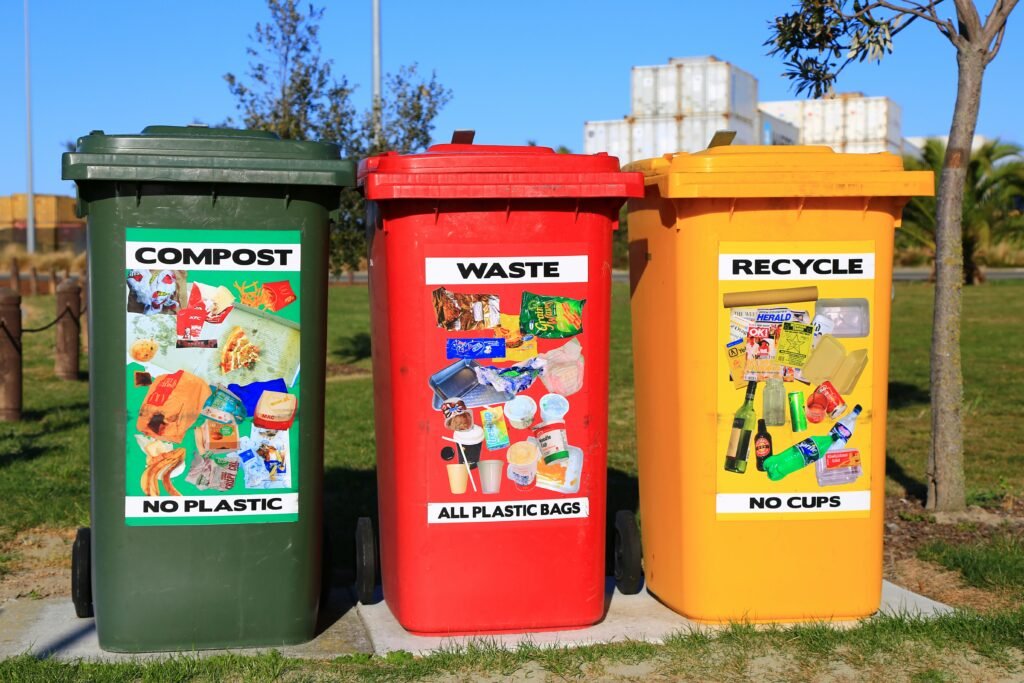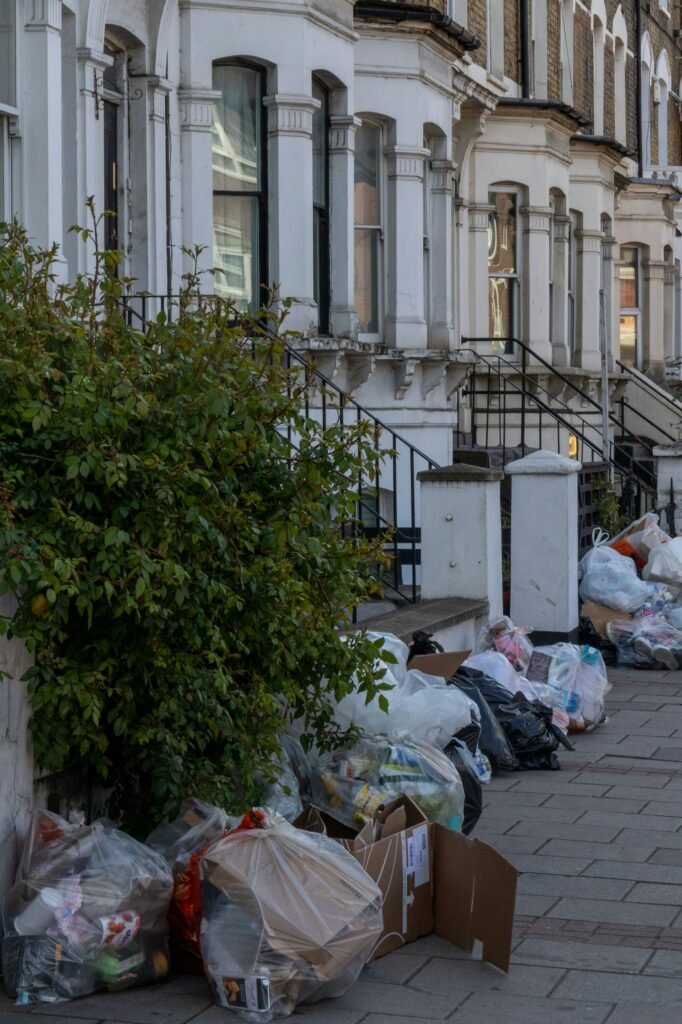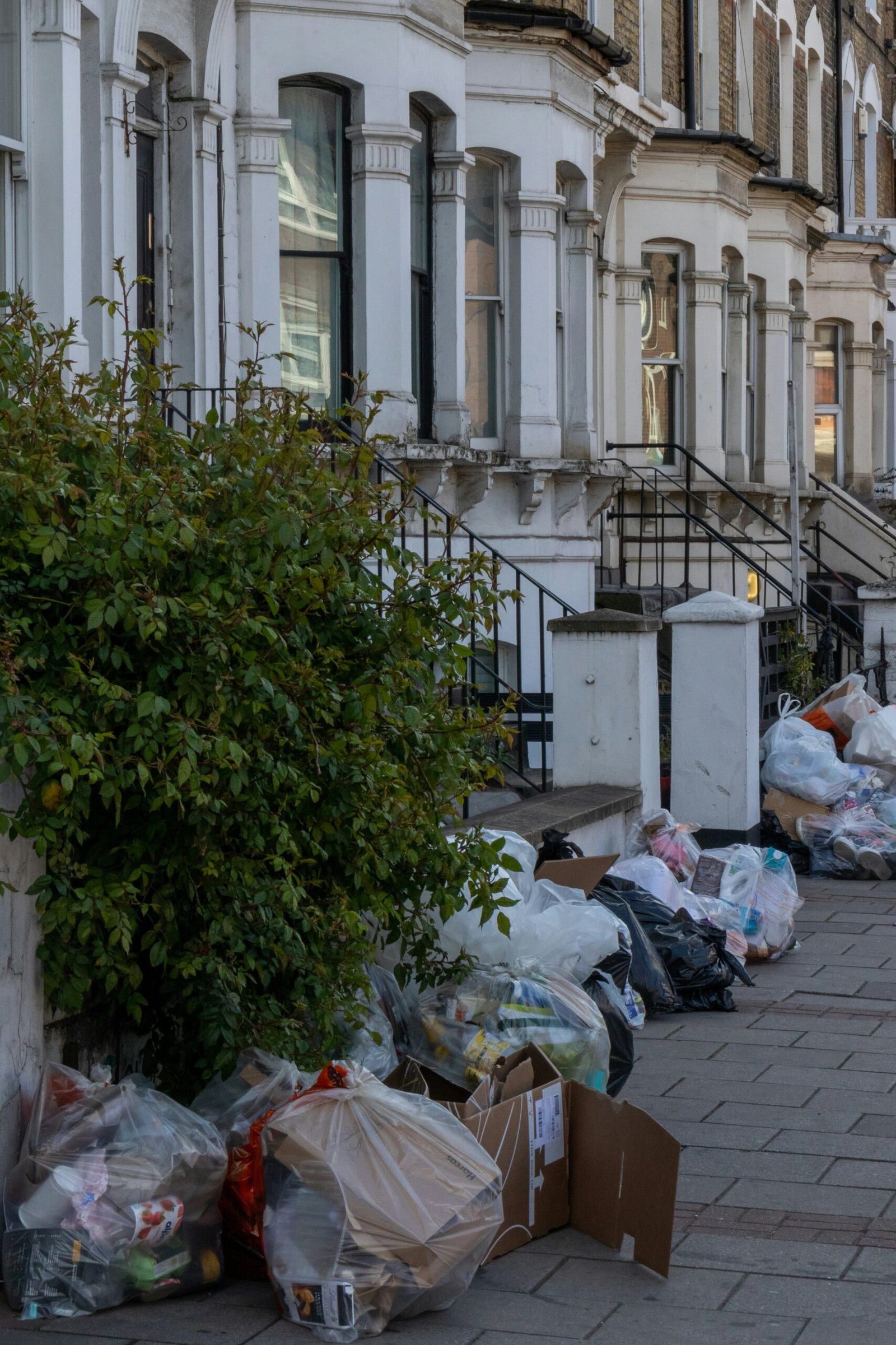Imagine a world where each and every one of us contributes towards a greener and more sustainable future. A world where small yet impactful changes in our daily habits can make a significant difference in reducing carbon emissions. In this article, we explore the role that recycled plastic boxes play in helping us achieve this goal. By repurposing and reusing plastic materials, we not only minimize waste but also contribute to the overall reduction of our carbon footprint. So, let’s dive into the fascinating world of recycled plastic boxes and discover how they are paving the way towards a cleaner and more environmentally-friendly tomorrow.

This image is property of images.unsplash.com.
Benefits of Using Recycled Plastic Boxes
Using recycled plastic boxes offers numerous benefits, starting with the reduction in the demand for new plastic production. By using recycled materials, you are contributing to the conservation of natural resources and minimizing the environmental impact of plastic manufacturing processes.
Another significant benefit is the amount of energy saved by using recycled plastic. Producing new plastic requires a vast amount of energy, while recycling plastic uses significantly less energy. By choosing recycled plastic boxes, you can help conserve energy resources and contribute to a greener and more sustainable future.
Furthermore, the use of recycled plastic boxes decreases carbon emissions. The process of manufacturing new plastic releases a substantial amount of carbon dioxide into the atmosphere, contributing to climate change. By utilizing recycled materials, you are helping to reduce carbon emissions and combat global warming.
Additionally, using recycled plastic boxes provides a significant advantage in minimizing landfill waste. Plastic waste is a significant contributor to landfills, taking hundreds of years to decompose. By reusing plastic through recycling, you are diverting waste from landfills and reducing the strain on our environment.
Recycled Plastic Box Manufacturing Process
The manufacturing process for recycled plastic boxes involves several steps:
Collection and sorting of plastic waste
The first step in the process is the collection and sorting of plastic waste. Various sources, such as households, businesses, and recycling centers, provide the raw material for the production of recycled plastic boxes. The plastic waste is sorted based on its composition and grade to ensure quality and consistency in the final product.
Cleaning and processing the plastic
Once the plastic waste is collected and sorted, it goes through a cleaning and processing stage to remove any impurities or contaminants. This step is crucial in ensuring that the recycled plastic is of high quality and suitable for manufacturing durable and reliable boxes.
Molding and shaping the recycled plastic
After the cleaning process, the recycled plastic is melted and molded into the desired shape and size for the plastic boxes. This step involves the use of specialized equipment and techniques to ensure precise and consistent manufacturing.
Quality control and testing
Once the recycled plastic boxes are molded and shaped, they undergo rigorous quality control checks and testing to ensure that they meet the necessary standards. This involves inspections for strength, durability, and any defects that may affect the functionality of the boxes.

This image is property of images.unsplash.com.
Applications of Recycled Plastic Boxes
Recycled plastic boxes have a wide range of applications across various industries and sectors. Some of the most common applications include:
Storage and organization
Recycled plastic boxes are perfect for storage and organization purposes. They can be used to store and organize items in both residential and commercial settings, providing a durable and eco-friendly solution.
Shipping and logistics
Recycled plastic boxes are ideal for shipping and logistics due to their durability and stackability. They can be used to transport goods safely, protecting them from damage during transit.
Retail and display packaging
Recycled plastic boxes can also be used in retail environments for packaging and display purposes. They offer a customizable solution for branding and product visibility while promoting sustainability.
Eco-friendly retail initiatives
Many retailers are embracing recycled plastic boxes as part of their eco-friendly initiatives. By using these boxes, they can demonstrate their commitment to sustainability and attract conscious consumers.
Advantages of Recycled Plastic Boxes over Other Packaging Options
Recycled plastic boxes offer several advantages over other packaging options. Here are some key advantages:
Lightweight and durable
Recycled plastic boxes are lightweight, making them easy to handle and transport. Despite their lightweight nature, they are also incredibly durable, ensuring that they can withstand the rigors of shipping and handling.
Waterproof and weather-resistant
One of the significant advantages of using recycled plastic boxes is their resistance to water and weather damage. This makes them suitable for various conditions, ensuring that your items remain protected during transit or storage.
Customizable for branding
Recycled plastic boxes can be customized with logos, colors, and other branding elements. This allows businesses to create a unique and recognizable packaging solution that aligns with their brand identity.
Stackable and space-efficient
Recycled plastic boxes can be stacked, optimizing storage and transportation space. This efficient use of space can lead to cost savings in both storage and logistics, ultimately benefiting businesses financially.

This image is property of images.unsplash.com.
Reducing Carbon Footprint in the Supply Chain
Reducing carbon footprint in the supply chain is crucial for long-term sustainability. Recycled plastic boxes play a significant role in achieving this goal. Here are some ways to reduce carbon footprint through their usage:
Using recycled plastic boxes for transportation
By using recycled plastic boxes for transportation, businesses can reduce carbon emissions associated with traditional packaging materials. The lightweight nature of these boxes also contributes to fuel efficiency, further reducing carbon emissions during transportation.
Optimizing packaging design and size
Designing packaging that is appropriately sized and minimizes material usage can significantly reduce carbon emissions. Recycled plastic boxes can be customized to fit specific products, eliminating excess materials and unnecessary waste.
Implementing sustainable shipping practices
Sustainable shipping practices, such as consolidating shipments and using environmentally friendly transportation methods, can further reduce carbon emissions. Pairing these practices with the use of recycled plastic boxes creates a more sustainable and eco-friendly supply chain.
Collaborating with eco-conscious suppliers
Partnering with suppliers who share the same environmental values can help create a more sustainable supply chain. By working together, you can ensure that the entire process, from manufacturing to transportation, follows sustainable practices, including the use of recycled plastic boxes.
Recycled Plastic Boxes in Retail Sustainability
The use of recycled plastic boxes in retail sustainability initiatives is gaining traction for several reasons. Here is why they are becoming an integral part of retail sustainability:
Promoting circular economy principles
Recycled plastic boxes align with circular economy principles by reducing waste and promoting resource efficiency. By incorporating these boxes into their operations, retailers demonstrate their commitment to sustainable practices and contribute to a more circular economy.
Educating consumers on the benefits of recycled packaging
Retailers can educate consumers about the positive impacts of recycled packaging. By promoting the use of recycled plastic boxes, retailers can raise awareness and encourage consumers to make conscious buying decisions that support sustainability.
Implementing recycling programs
Retailers can also take an active role in recycling programs by facilitating the recycling of plastic boxes and educating consumers on how to properly dispose of them. This ensures that the lifecycle of the boxes continues beyond their initial use, reducing waste and promoting a more sustainable retail industry.
Investing in sustainable packaging solutions
By investing in sustainable packaging solutions such as recycled plastic boxes, retailers can reduce their environmental footprint while appealing to environmentally conscious consumers. These investments not only benefit the planet but also contribute to cost savings and improved brand reputation.
The Role of Government Policies and Regulations
Government policies and regulations play a crucial role in driving the adoption of recycled plastic packaging. Here are some ways in which governments can contribute to sustainability efforts:
Encouraging the use of recycled plastic packaging
Governments can incentivize businesses to switch to recycled plastic packaging by offering tax benefits or subsidies. By creating a favorable business environment, governments can encourage the use of recycled plastic boxes and promote sustainable practices.
Mandating sustainable packaging standards
Implementing regulations that require businesses to use sustainable packaging standards can significantly impact the reduction of plastic waste. By enforcing these standards, governments can drive the adoption of recycled plastic boxes and other eco-friendly packaging options.
Providing incentives for eco-friendly initiatives
Governments can provide financial incentives to businesses that engage in eco-friendly initiatives, including the use of recycled plastic boxes. These incentives can range from grants and subsidies to reduced taxes, encouraging businesses to prioritize sustainability in their operations.
Promoting recycling and waste management
Government support for recycling and waste management initiatives is vital for creating a sustainable society. By investing in recycling infrastructure and promoting responsible waste disposal, governments can foster a culture of recycling and contribute to the widespread adoption of recycled plastic boxes.
Challenges and Limitations of Recycled Plastic Boxes
While recycled plastic boxes offer substantial benefits and opportunities, certain challenges and limitations need to be acknowledged. These include:
Contamination and quality issues
Contamination of plastic waste can pose challenges during the recycling process. It is essential to ensure that the recycled plastic used for manufacturing boxes is free from contaminants to produce high-quality and reliable products.
Limited availability and variety
The availability and variety of recycled plastic may be limited compared to virgin plastic materials. This can sometimes restrict the options and customization opportunities available when choosing recycled plastic boxes.
Higher initial costs
The initial costs of recycled plastic boxes may be higher compared to traditional packaging materials. However, the long-term benefits, such as reduced carbon footprint and enhanced brand reputation, often outweigh the upfront investments.
Resistance to change
Adopting new packaging practices and materials can meet resistance from businesses and consumers alike. Encouraging widespread adoption of recycled plastic boxes may require education and awareness campaigns to overcome this resistance and promote the advantages of sustainable packaging.
Success Stories and Case Studies
Numerous companies have already embraced the use of recycled plastic boxes and have experienced positive environmental impact and cost savings. For example, Company X switched to recycled plastic boxes for their product shipments, reducing their carbon emissions by 30% and saving thousands of dollars in packaging costs.
Customer feedback regarding the use of recycled plastic boxes has also been overwhelmingly positive. Customers appreciate businesses that prioritize sustainability and view the use of recycled packaging as a testament to a company’s commitment to the environment.
The long-term sustainability benefits of recycled plastic boxes extend beyond immediate cost savings. By reducing the environmental impact of packaging, businesses contribute to a healthier planet for future generations.
Future Prospects and Innovations
The future of recycled plastic boxes holds promising advancements and innovations. Here are some key areas of focus:
Advancements in recycling technology
Technological advancements in recycling processes will likely lead to higher-quality recycled plastic materials. This will expand the possibilities for using recycled plastic boxes across various industries and applications.
Integration of biodegradable materials
The integration of biodegradable materials with recycled plastic can further enhance the sustainability of plastic packaging. This combination offers potential solutions to address concerns about plastic waste while maintaining the durability and functionality of the boxes.
Collaborative industry initiatives
Collaboration among industry stakeholders, such as manufacturers, retailers, and recycling centers, can drive collective efforts to promote the use of recycled plastic boxes. This collaboration can lead to shared resources, knowledge exchange, and a unified approach towards reducing the carbon footprint of packaging.
Growing consumer demand for sustainable packaging
As consumer awareness and concern for the environment continue to grow, the demand for sustainable packaging options will also increase. This rising demand will likely drive innovation and investment in recycled plastic boxes, creating a more sustainable future for packaging solutions.
In conclusion, the use of recycled plastic boxes offers numerous benefits in reducing carbon footprint, conserving resources, and minimizing waste. From manufacturing to retail sustainability, recycled plastic boxes play a significant role in promoting a greener and more sustainable future. By addressing challenges, embracing innovations, and collaborating with industry stakeholders, businesses and governments can create a more sustainable packaging ecosystem that benefits both the environment and the economy.
